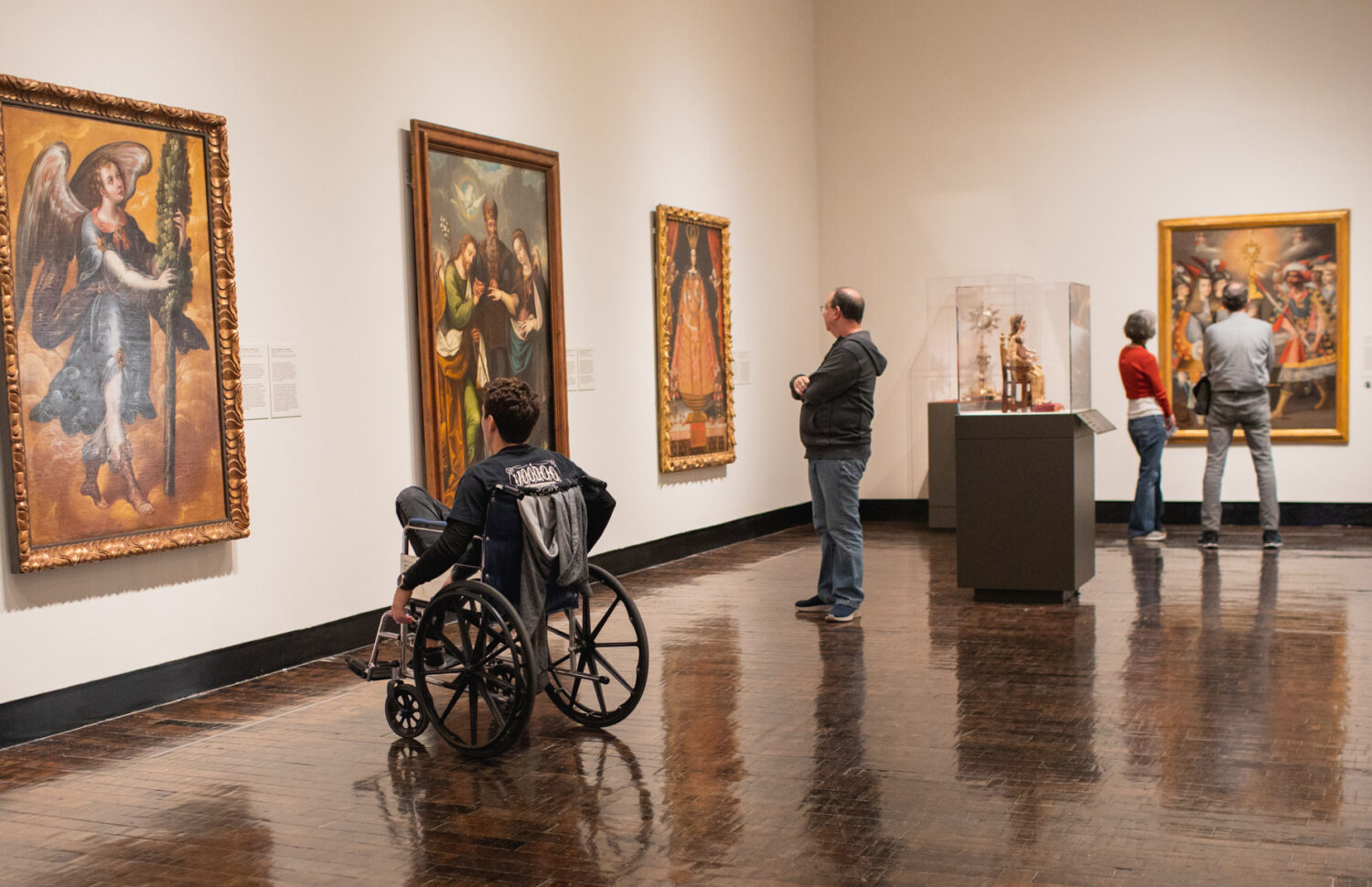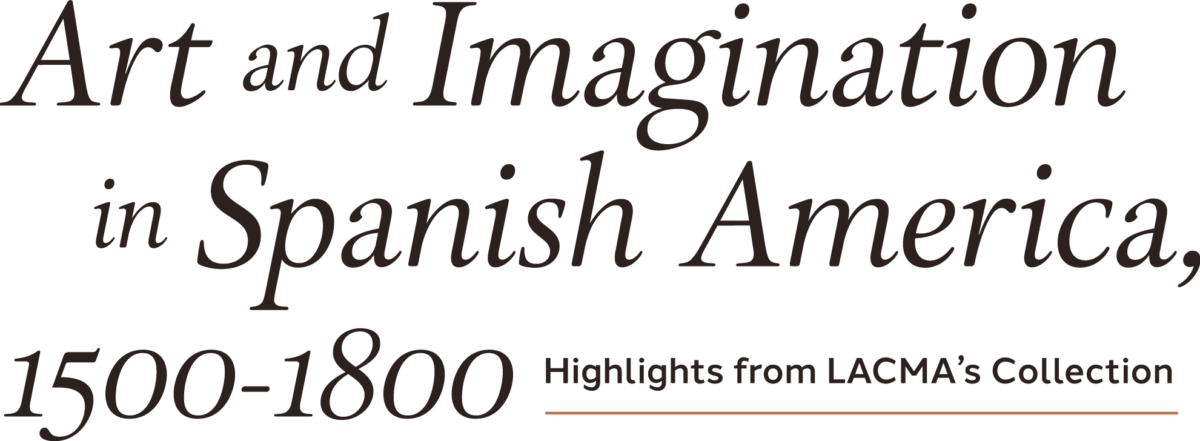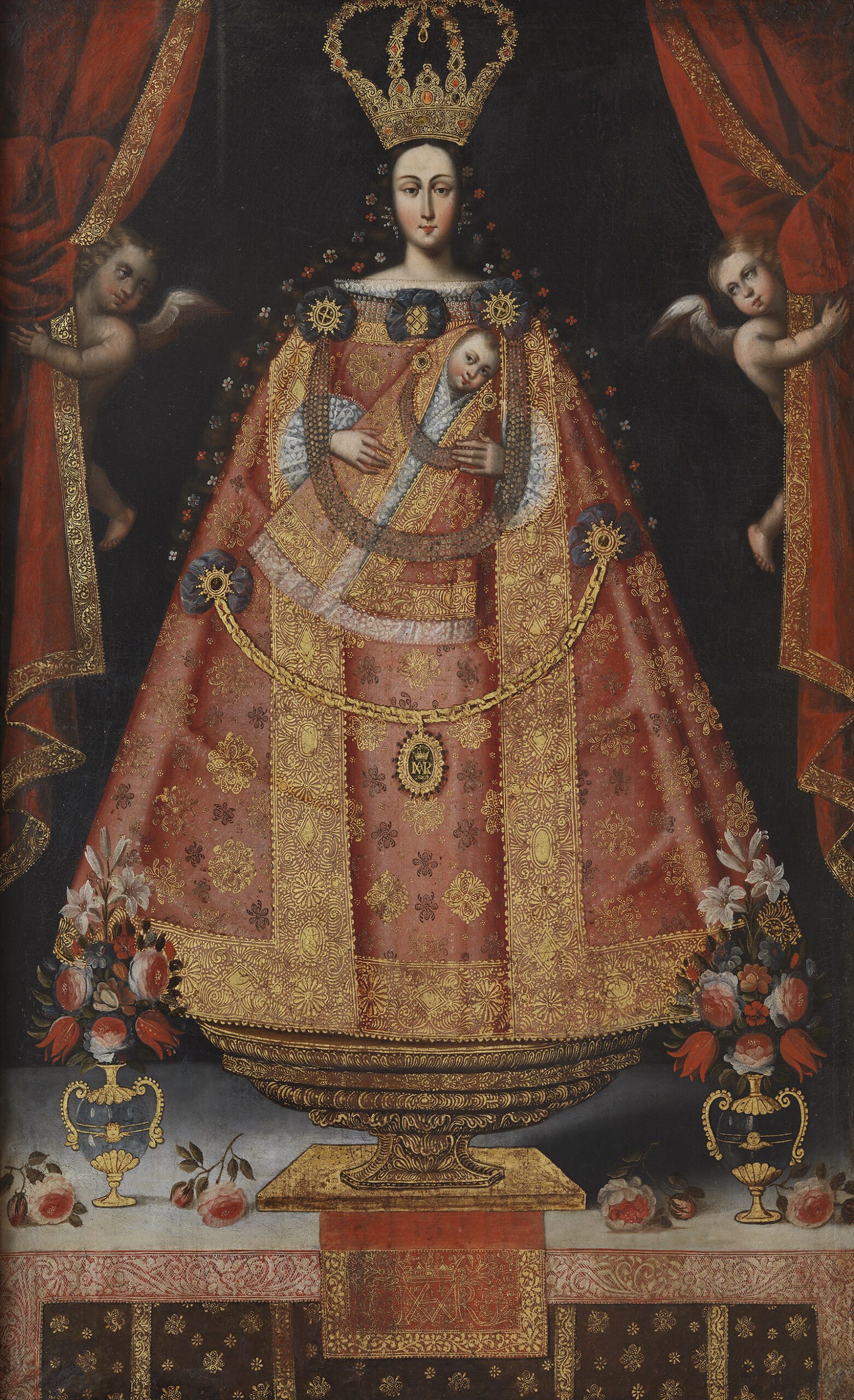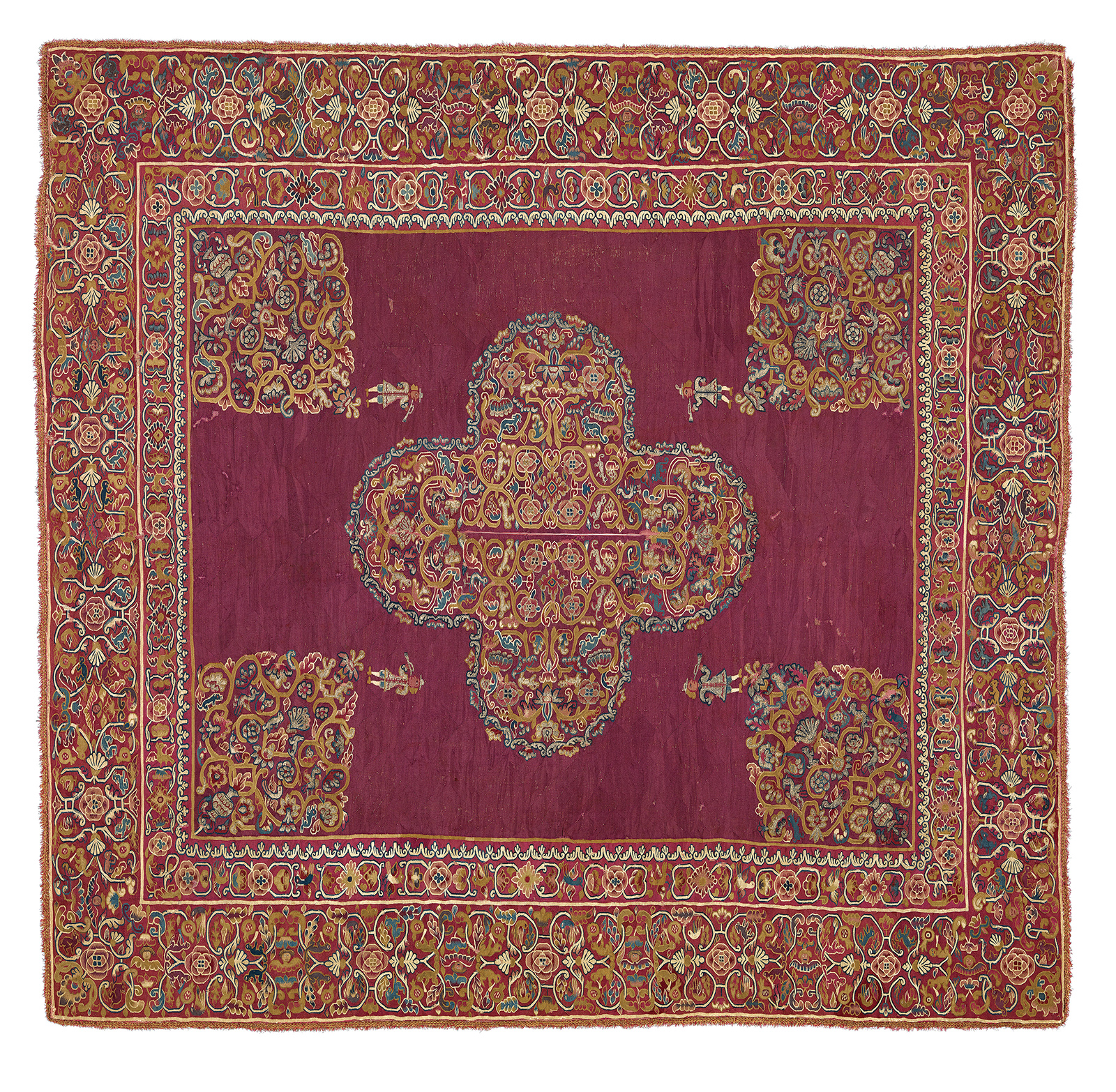Imperial expansion, conquest, colonization, and the transatlantic slave trade marked the period spanning from 1500 to 1800. Cataclysmic social and geopolitical shifts brought people into closer contact than ever before in real and imagined ways, propelling the creative refashioning of the material culture that surrounded them. After the Spaniards began colonizing the Americas in the late fifteenth century and set out to spread Christianity, artists working there drew from a range of traditions—Indigenous, European, Asian, and African—reflecting the interconnectedness of the world. Private homes and civic and ecclesiastic institutions soon teemed with imported and local objects.
Spanish America was neither a homogeneous nor a monolithic entity, and local artists, including those who remain unidentified, were not passive absorbers of foreign traditions. While acknowledging the profound violence that marked the process of conquest and colonization, this exhibition explores the intricate social, economic, and artistic dynamics of these societies that led to the creation of astounding new artworks—many shipped to other locales in their own day. This exhibition of paintings, sculptures, and decorative arts underscores the generative power of Spanish America and its central position as a global crossroads. The works are drawn from the Los Angeles County Museum of Art’s notable collection of Spanish colonial art, which has largely been formed in the last fifteen years.
Organized by the Los Angeles County Museum of Art
Supported in part by the
Sandra Schatten Foundation
Program and Spanish translation sponsor
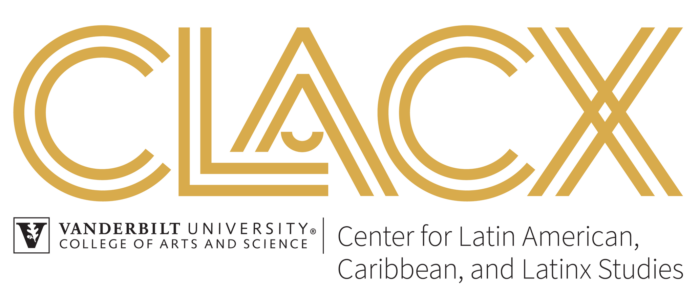
Supported in part by

Exhibition gallery
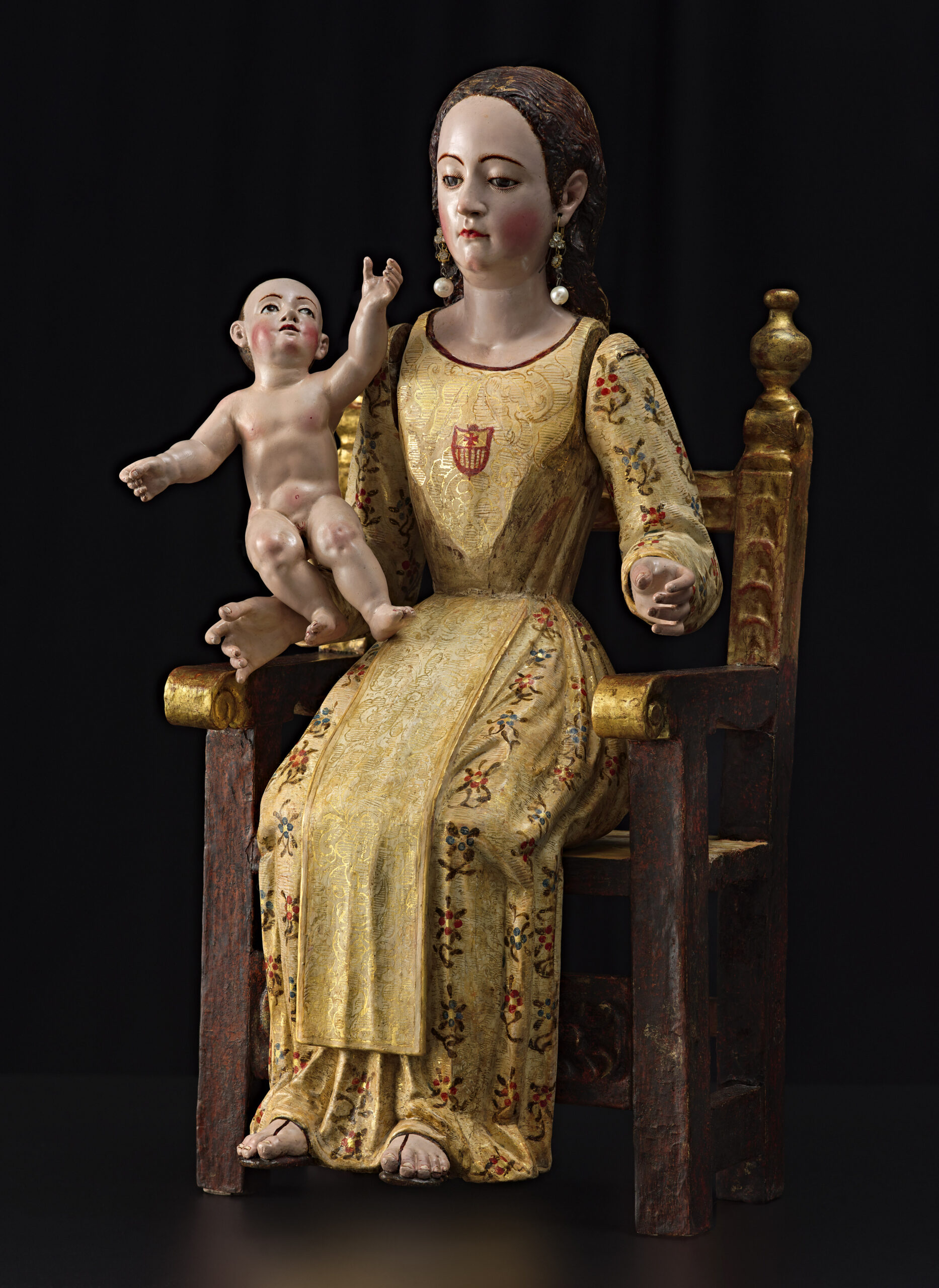
Unidentified sculptor and polychromer. Quito, Ecuador. Dressed Image of the Virgin of Mercy or “The Pilgrim of Quito” (Imagen vestidera de la Virgen de la Merced o “Peregrina de Quito”), ca. 1700–1750. Polychromed and gilded wood, iron, and glass; 20 7/8 × 9 13/16 × 9 7/16 in. Los Angeles County Museum of Art, purchased with funds provided by the Bernard and Edith Lewin Collection of Mexican Art Deaccession Fund, M.2022.12a-e. Photo: Carteia Fine Arts Madrid

Antonio de Arellano (Mexico, 1638–1714); Manuel de Arellano (Mexico, 1662–1722). The Virgin of Guadalupe (Virgen de Guadalupe), ca. 1690. Oil on canvas; 20 7/8 × 9 13/16 × 9 7/16 in. Los Angeles County Museum of Art, Purchased with funds provided by the Bernard and Edith Lewin Collection of Mexican Art Deaccession Fund. Photo © Museum Associates/LACMA
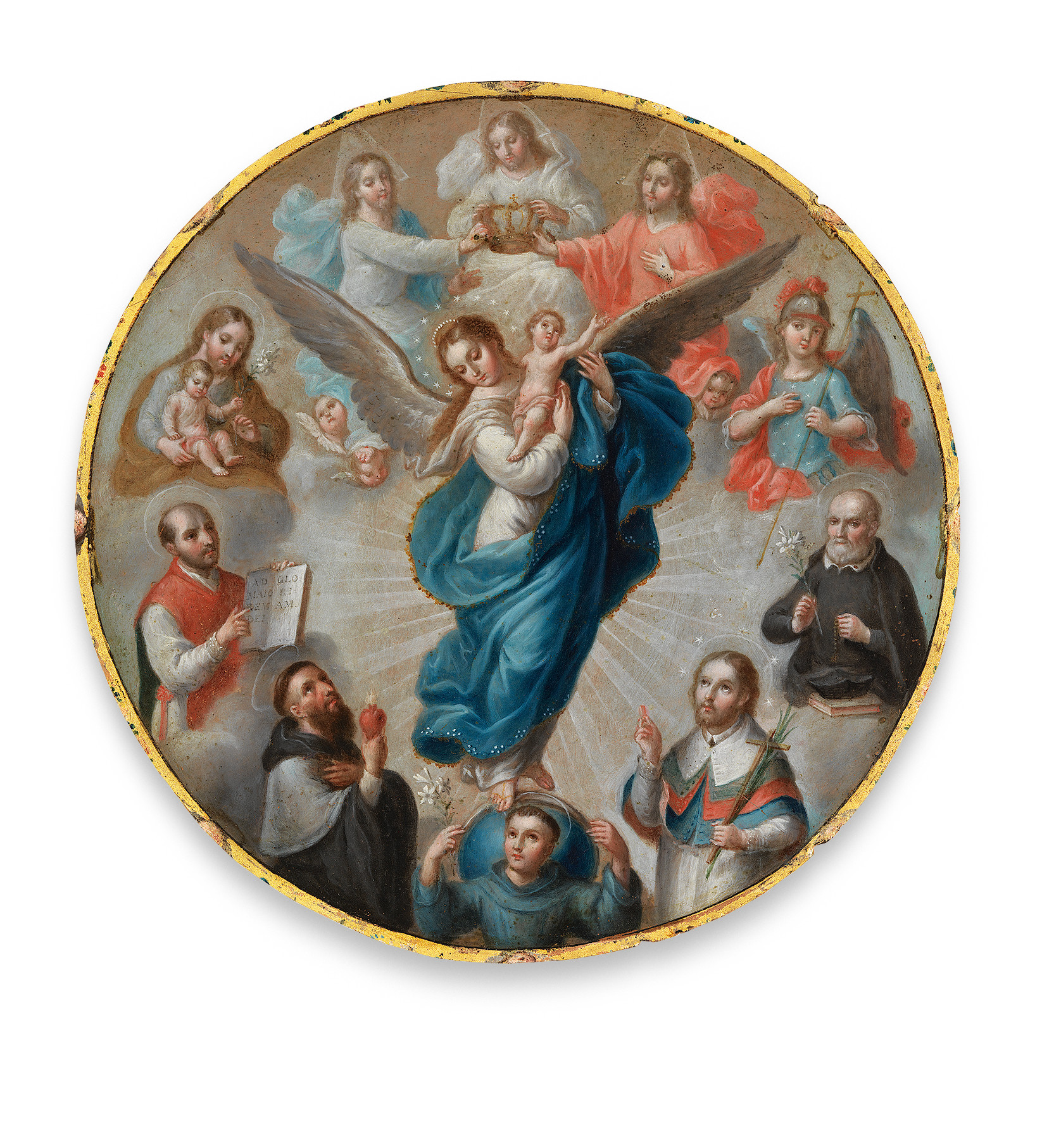
Attributed to Miguel Cabrera (Mexico, ca. 1715–1768). Nun’s Badge with the Virgin of the Apocalypse and Saints, ca. 1760. Oil on copper; diameter: 7 in. Los Angeles County Museum of Art, purchased with funds provided by the Bernard and Edith Lewin Collection of Mexican Art Deaccession Fund, M.2018.177.2. © Museum Associates/LACMA
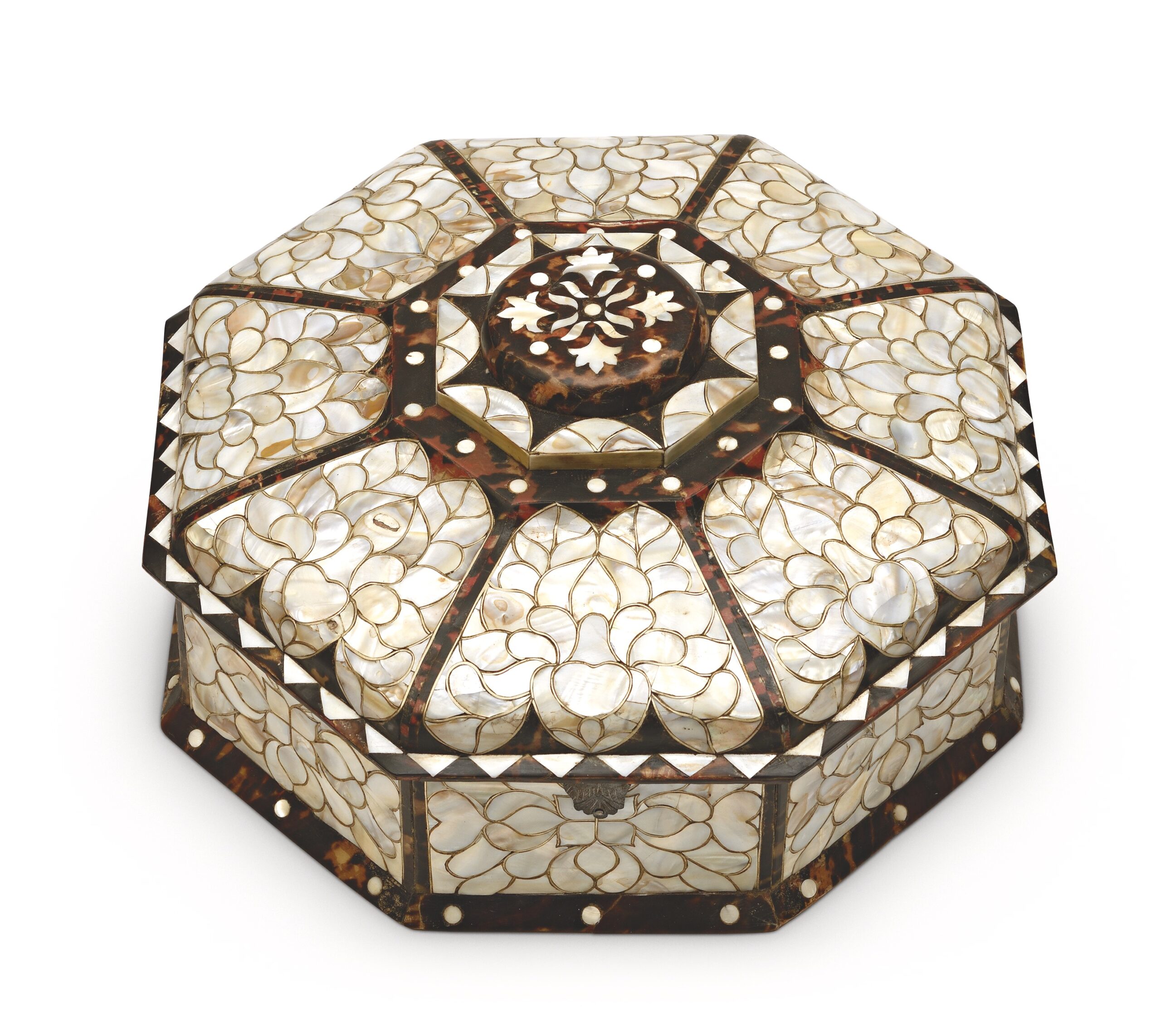
Unidentified artists. Sewing or Jewelry Box (Costurero o joyero), last third of the 18th century. Wood, inlaid with mother-of pearl and tortoiseshell, brass, silver, and paint; diameter: 15 3/4 in. Los Angeles County Museum of Art, purchased with funds provided by the Bernard and Edith Lewin Collection of Mexican Art Deaccession Fund. Photo: Galerie Terrades, Paris
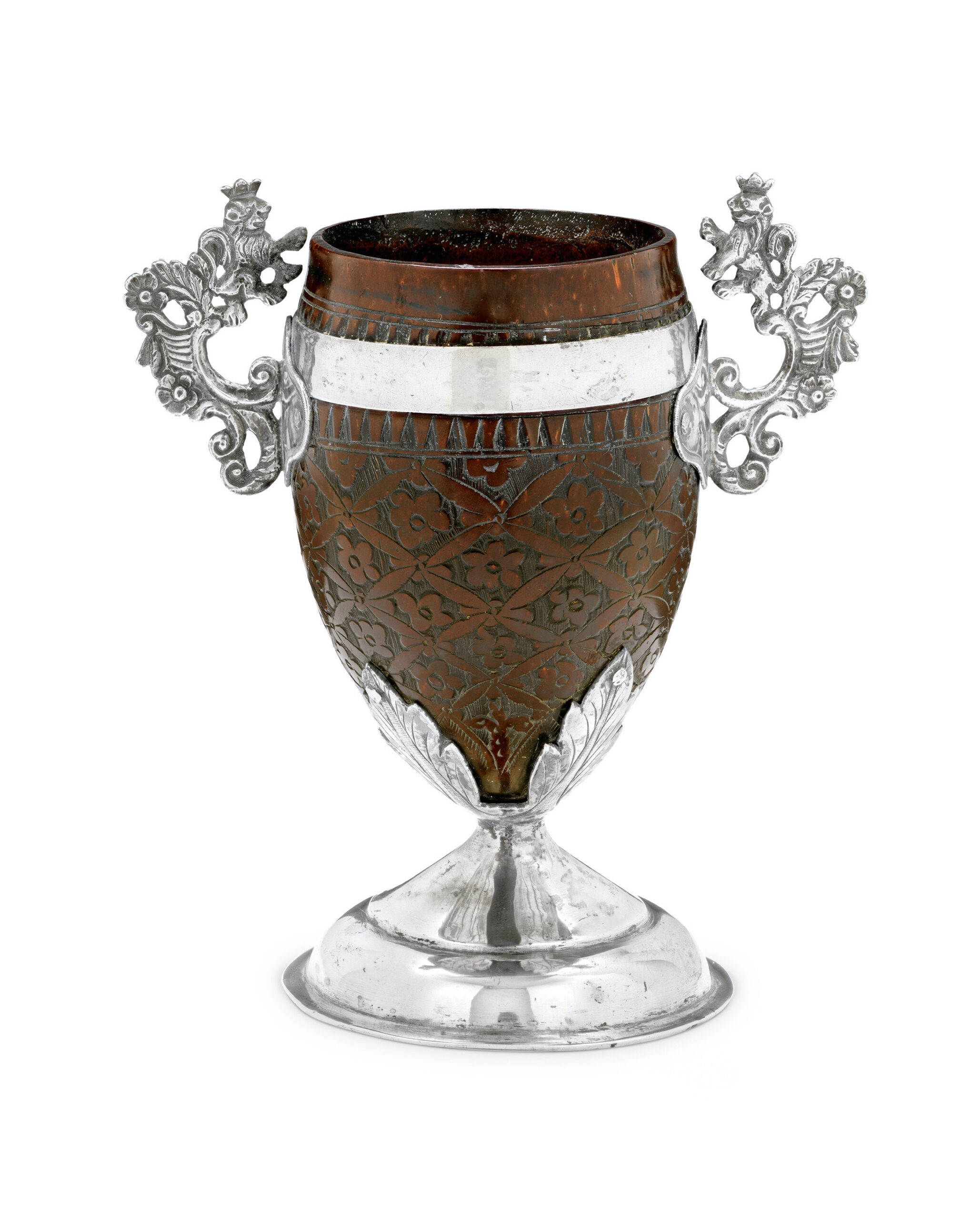
Unidentified artists. Coconut-Shell Cup (Coco chocolatero), 17th–18th century. Polished and engraved coconut shell and silver; 4 1/2 x 4 x 2 1/2 in. Los Angeles County Museum of Art, gift of Ronald A. Belkin, Long Beach, California, in memory of Charles B. Tate, M.2015.69.2. Photo: © Museum Associates/LACMA
